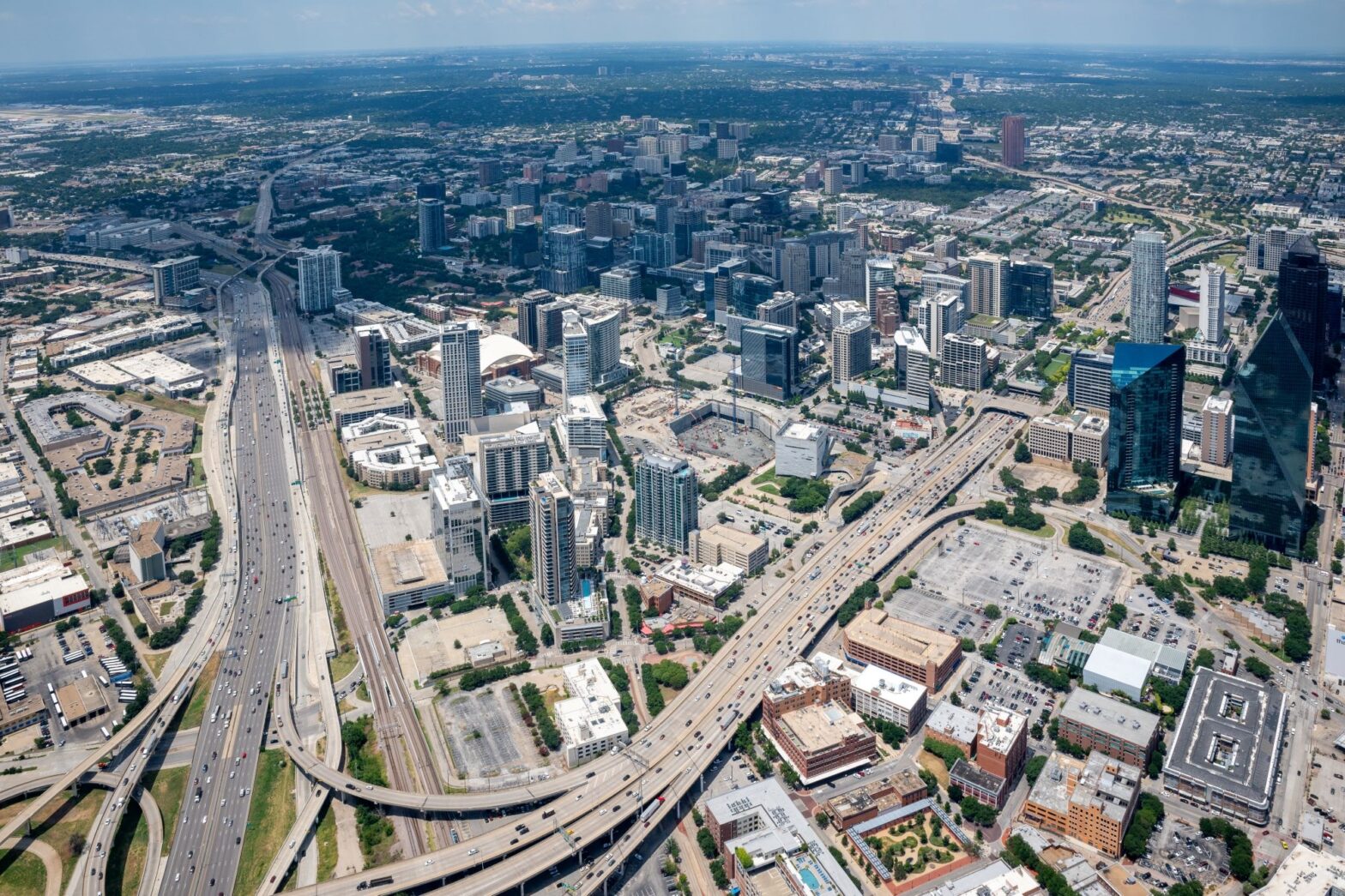DALLAS—Ross Perot Jr. gestured out the window as his helicopter circled a 4.5-acre pit alongside the skyline of downtown Dallas. Texas and U.S. flags hung from a crane within it.
The site is where Perot’s real-estate investment company, Hillwood, is partnering to build a $500 million Goldman Sachs GS 0.39%increase; green up pointing triangle tower for more than 5,000 bankers and investors. That will make it the financial firm’s second-largest office, behind New York. As the helicopter swung northwest, windows glinted from two unfinished Wells Fargo office towers, scheduled to open next year. A bit farther away: a fourth office building under construction for Charles Schwab, which moved its headquarters from California to the Dallas area five years ago, and the footprint of a Deloitte campus doubling in size.
The sprawling landscape illustrates an expansion that has brought to North Texas a presence in financial services that now sits second only to New York City in the U.S. And growth of so-called Y’all Street is accelerating.
“It’s stunning to watch,” said Perot, a Dallas native and son of the former presidential candidate, of the phenomenon other investors termed a finance invasion. “You’re really seeing a whole new North Texas ecosystem.”
New York’s foothold on finance still dwarfs that of North Texas. But greater Dallas has largely shed its reputation as a financial backwater, memorialized in Michael Lewis’s 1989 book, “Liar’s Poker,” as a purgatory Salomon Brothers traders in New York feared being shipped off to.
Data from the Bureau of Labor Statistics shows that Texas investment-banking and securities employment has increased 111% over the past 20 years and 27% since the pandemic, compared with 16% and 5%, respectively, in New York. The number of people employed in finance overall has risen 13% in Texas since 2019, compared with 2% in New York and 3% nationally.
Dallas now ranks second to New York City among metro areas in the number of workers employed in finance-related industries. Other cities, particularly in the Sunbelt, have seen growth as those services increasingly seek to be closer to customers nationwide.
Florida has seen a nearly 15% increase in the number of people employed in finance since 2019, according to the bureau’s data. The Charlotte, N.C., metro area, home to Bank of America, now has more than 8% of its workforce employed in finance, compared with 6.9% in Phoenix, 6.8% in Dallas and 6.5% in New York.
Ray Perryman, president of the Perryman Group, an economic research and analysis firm, said Texas has outpaced New York for several years in banking employment and is rapidly gaining in investment employment. Other major cities such as Chicago have seen minimal growth, he said.
“Wall Street remains the center of the investment universe, but Y’all Street is gaining rapidly,” Perryman said.
Organizers in June announced the launch of a Texas Stock Exchange, a long-shot initiative to compete with the New York Stock Exchange and Nasdaq. Those in the industry disagreed over whether the effort has a chance of success or is primarily a political statement, but they agreed it could add heft to financial interest in the area.
While the flight of many Silicon Valley tech executives to Austin has been exhaustively reported, the finance boom in Dallas has gone less noticed.
JPMorgan Chase now has more employees in Texas (31,000) than in New York state (28,300). In Texas, about 12,700 employees work out of a 50-acre campus in the Dallas suburb of Plano, where meeting rooms are decorated with saddles and Western wear and on-site eateries include a Texas barbecue stand. The complex, comprising four buildings and 1.5 million square feet of office space, has doubled its employees since it opened in 2017.
“You can do the job you’d do in New York, but in a different location,” said Andy Rabin, who oversees JPMorgan’s investment banking in the Southwest.
While Houston is central to oil and Austin to government, the Dallas-Fort Worth metro area has long been a financial hub. It is the fourth-largest metro area in the country and one of the most centrally located in North America.
